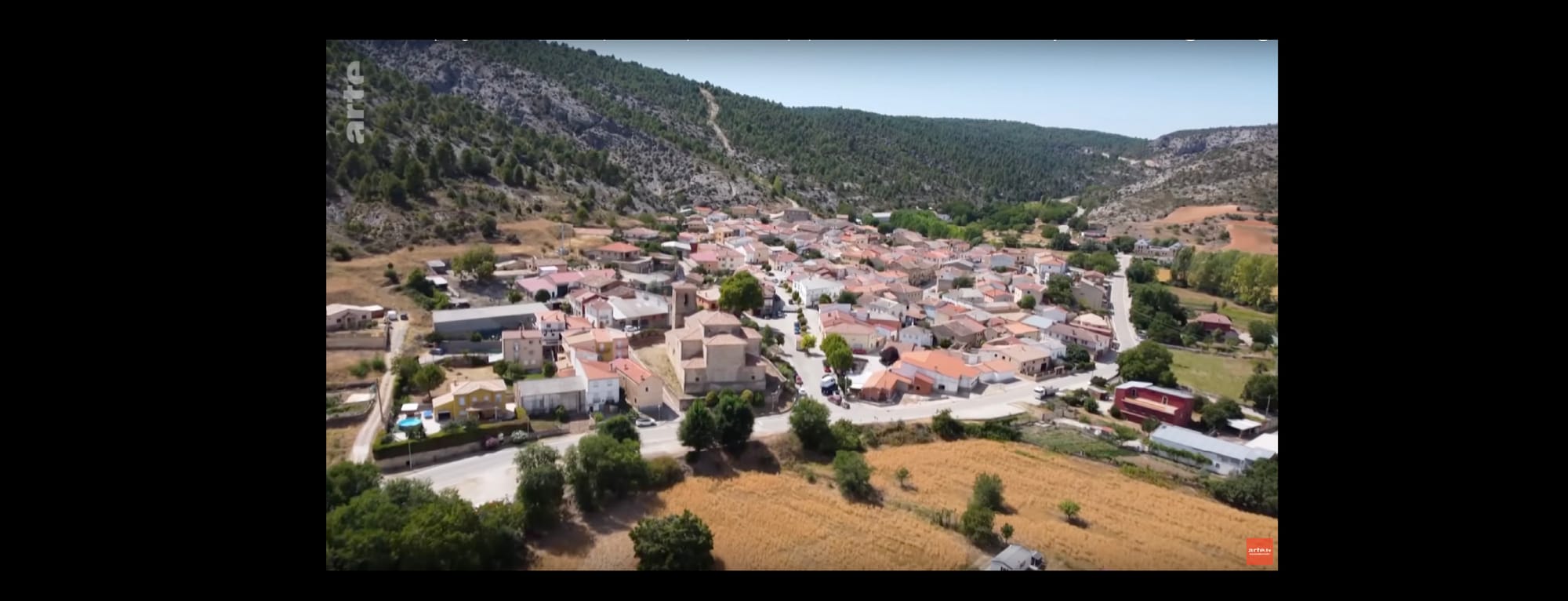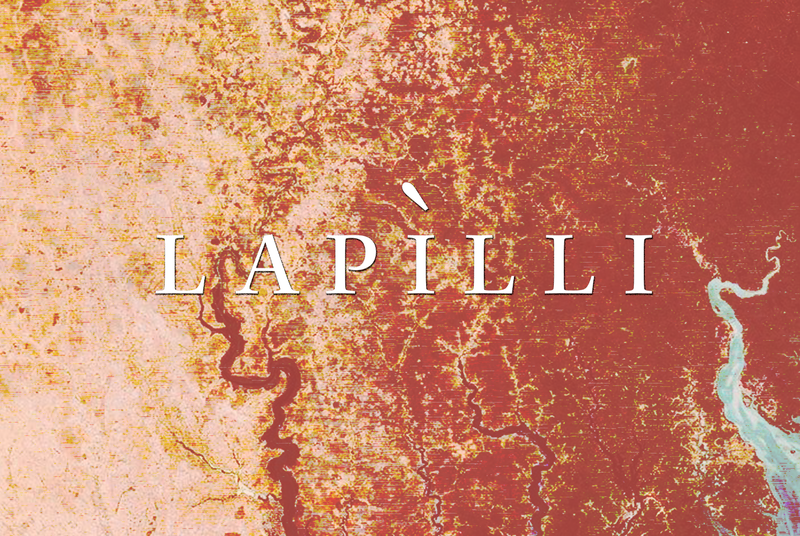In this Lapilli, we focus on two flooding events: the one that happened a few weeks ago in Tuscany (to which we dedicated the previous Lapilli+) and the one that happened in May in Emilia Romagna and its long-lasting effects. We have also featured some reports from different parts of the Mediterranean, including from a weather station in Greece, from a fire-ravaged Turkey and on a dubious way of fighting desertification in Tunisia. We also highlighted a report that examines the link between climate change and human health. And much more. Finally, we want to thank the many new readers who recently subscribed to Lapilli. Your input, feedback and questions are always welcome. Happy reading!

The smell of floods. This newsletter often examines the connections between intense flooding events and climate change. In May, after the floods hit Emilia Romagna, we interviewed Paride Antolini, president of the region's geologists who talked to us about the memory of water (Lapilli+).
Last month, after another flood hit Italy, this time in the plain between Florence, Prato and Pistoia in Tuscany, our Guia Baggi joined photographer Michele Borzoni on the field and reported on what they found on the ground. You can find the coverage in the previous Lapilli+.
Because mud hardens and infrastructure takes a long time to dry following a large flooding, the smell of mud and stagnant water can persist for many months, as Martina Paolucci reports in this story published in Scomodo. When Paolucci went to Faenza, in Emilia Romagna, Italy, six months after the city was hit by a record-breaking flooding event, she found that the smell of mud and water was still there. The city is slowly moving forward, but traces of what happened in May can not only be smelled but seen. Throughout the city many storefronts are still closed, first floor apartments are still abandoned and hard mud is still covering gardens and parks. Recovery money is slowly coming but it is not enough to cover the damages in full.
The impacts of wildfires in Turkey. Turkey has experienced an uptick in the frequency and intensity of wildfires in the last few years. Hundreds of rural villagers and farmers that have based their livelihoods on the forest have had their life completely disrupted and have effectively become climate change migrants. In this story, science journalist Utku Kuran visits and photographs some of Turkey’s affected regions, documenting the farmers, honey harvesters and shepherds to better understand the environmental and social consequences of wildfires and the key role these actors could play in preventing some of their most damaging effects (Earth.org).
The counter effects of greening Tunisia desert. For many years we read about initiatives aimed at planting trees to stop the expansion of the Sahara desert in Sub-Saharan countries and expanding oases in North African countries, such as in Morocco or Tunisia, where the desert is extending towards the Mediterranean coast. But, as journalists Aïda Delpuech and Arianna Poletti report, planting trees or growing desert oases using intensive monoculture might be more damaging than beneficial. Trees and monocultures require a lot of water to grow and, if water is scarce, this accelerates its depletion and leads to more desertification. Some farmers and activists in Tunisia are fighting the economic forces behind large greening projects and advocate for a more sustainable way to stop desertification (New Lines Magazine).

The role of weather stations. Along the northern coast of the island of Crete in Greece, on top of a hill, sits a weather station that registers air pollution from very far away. At the crossroad of three continents, air masses tend to converge to this area of the Mediterranean, bringing pollution and emissions from hundreds of miles away. The Finokalia Station is one of the many stations that allow scientists to gather data used in the climatic models that we are increasingly familiar with thanks to the Intergovernmental Panel on Climate Change assessment reports (Radar Magazine).
Health and climate change. The Middle East and North Africa is one of the regions considered most vulnerable to the negative effects of the climate crisis, which makes it important to stress the relevance of the latest annual report on the relationship between health and climate change published in the medical journal The Lancet. The report warns about the serious threats that the current level of mean temperature increase poses to human health and reiterates that the intensity of heat waves has worsened due to human-induced climate change. People older than 65 and babies younger than a year old are exposed to twice as many heatwaves days than they would have between 1986 and 2005. Higher temperatures also induce droughts that affect agriculture and food supply, which can lead to malnutrition. In addition, high temperatures create the condition for diseases such as dengue, malaria, vibriosis and the West Nile virus to thrive. At the same time, the report underlines the many health benefits that come by taking action. Human health should be at the forefront of climate change action, since transitioning to renewable and clean sources of energy, cutting air pollution and adopting low carbon diets would also benefit people’s health (Euronews).

Banning bottom fishing in the Alboran Sea. In early November, over 20 countries along the shore of the Mediterranean and the Black Sea agreed on a series of measures to protect and restore fisheries. One of the most notable is the banning of any kind of bottom fishing, including bottom trawling, which is considered one of the most damaging fishing practices, in a 400-square-kilometer (154-square-mile) area around the deep-sea coral reef in Cabliers Bank where the Atlantic Ocean meets the Mediterranean between Spain and Morocco. The initiative is particularly significant because the Cabliers Bank, which is located among the busiest areas in the world — 25 percent of global maritime traffic crosses this stretch of the Med every year as you can see from the image below — is the only cold-water reef in the Mediterranean and serves as a refuge for juvenile fish (The Maritime Executive).
Criminalizing wide scale environmental damages. The European Union is the first international body to criminalize wide-scale environmental damage comparable to ecocide. Though the term "ecocide" is not explicitly used, lawmakers introduced stricter penalties for environmental crimes, including activities like water abstraction and pollution. But the directive excludes fishing, toxic waste export and carbon market fraud. The goal is to end impunity for criminals who damage the environment and may initiate a new era of environmental litigation in Europe (The Guardian).

Rural Erasmus. In the last 40 years, villages in Spain have lost half of their population and struggle to attract new younger residents. The government has decided to launch an Erasmus program. Rather than pay students to move to large European cities in a year-long exchange program, it pays students to complete an internship working in agriculture, forest management, sustainable tourism and so on in some of the many depopulating pueblos. Some decide to stay for longer (Arte).


GUGLIELMO MATTIOLI
As a multimedia producer, he has contributed to innovative projects using virtual reality, photogrammetry, and live video for The New York Times. In a past life, he was an architect and an urban planner, and many of the stories he produces today are about the built environment and design. He has worked with publications such as The New York Times, The Guardian, and National Geographic. He has been living and working in New York City for 10 years.Thank you for reading this far. See you in two weeks with a free and complimentary Lapilli+ for you all.
If this newsletter was forwarded to you, you can subscribe here to continue receiving it. Lapilli is free and always will be, but in case you would like to buy us a coffee or make a small donation, you can do so here. Thank you!
Lapilli is the newsletter that collects monthly news and insights on the environment and the Mediterranean, seen in the media and selected by Magma. Here you can read Magma's manifesto.

